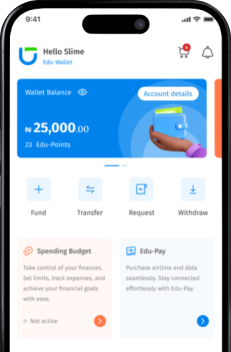A CV, for short is a curriculum vitae, it’s a comprehensive document that provides an overview of a person’s academic and professional background, achievements, skills and qualifications.
Why do I need a CV as a Student?
A CV is crucial for every student. It aids in securing internships, part-time jobs, scholarships, and graduate programs. Internship applications often necessitate a CV that showcases academic achievements and relevant experiences. Similarly, for part-time employment, a well-prepared CV highlights skills and accomplishments.
Also, some scholarships and grant applications require a comprehensive CV demonstrating academic prowess and extracurricular involvement. A strong CV serves as a passport to various opportunities, enabling students to power their academic and professional journey with confidence and competence.
7 Tips for Crafting A Compelling CV?
Crafting a compelling CV is crucial for landing your dream job, but certain elements often go overlooked. To ensure your CV stands out from the crowd, here are seven key components you may not have considered:
- Quantifiable Achievements: While listing your job responsibilities is important, don’t forget to highlight your achievements with quantifiable data whenever possible.
- Keywords from the Job Description: Many employers use applicant tracking systems (ATS) to screen CVs for relevant keywords before they even reach human eyes. To increase your chances of getting noticed, carefully embed in your CV keywords that are directly from the job description, ensuring your skills and experiences align with the employer’s requirements.
- Volunteer Work and Extracurricular Activities: As a student ensure you engage in volunteering work. Including volunteer work and extracurricular activities on your CV can demonstrate valuable skills and attributes, such as teamwork, leadership, and community involvement. Don’t underestimate the significance of these experiences, as they can help you stand out as a well-rounded candidate.
- Relevant Certifications and Training: In addition to your formal education, highlighting relevant certifications, training courses, and workshops can showcase your commitment to continuous learning and professional development. Whether it’s a specialized certification or a relevant industry workshop, these credentials can enhance your credibility and expertise in your field.
- Soft Skills and Personal Attributes: While technical skills are essential, employers also value soft skills such as communication, problem-solving, and adaptability. Incorporating these qualities into your CV through examples and anecdotes can provide insight into your personality and how you would fit into the company culture.
- Links to Professional Profiles and Portfolios: In today’s digital age, providing links to your professional profiles, such as LinkedIn, personal website and relevant social media accounts. This can offer employers additional context about you, your skills, experiences, and accomplishments. If relevant, include links to portfolios, projects, or articles that showcase your work and expertise.
- Testimonials and Recommendations: Including testimonials or recommendations from previous employers, colleagues, or clients can add credibility to your CV and provide validation of your skills and capabilities. Whether it’s a brief quote or a recommendation, positive feedback from others can strengthen your candidacy and leave a lasting impression on potential employers.
“Your CV is your personal marketing brochure – sell yourself!”


